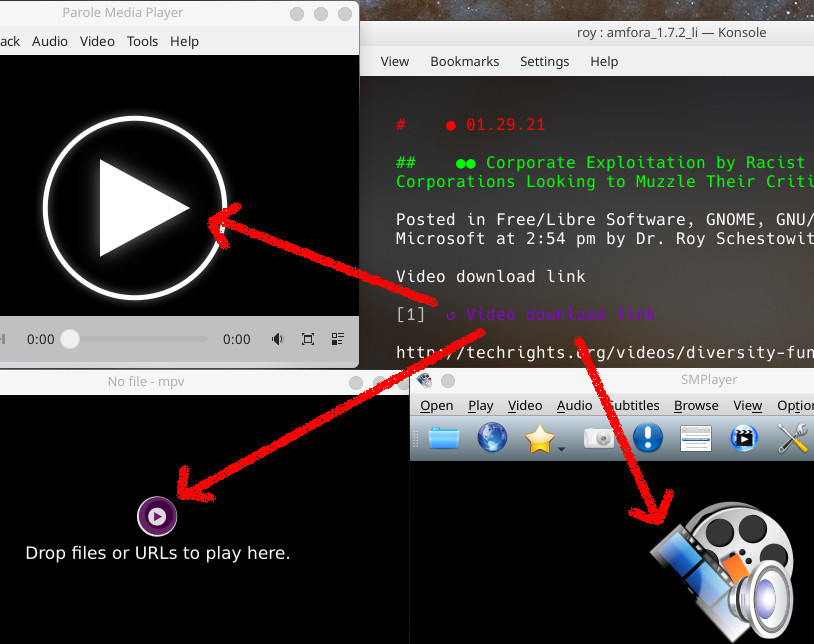
THERE is wide a range of products that can let one host, manage and serve videos. The GNU Project has one of its own. Many bits of software, however, are over-complicated and some simply urge the users to outsource hosting to some other company/ies. Social control media-like video hosting (e.g. YouTube) is part of the problem, not the solution, and it's not cost-free; the cost is free speech or the freedom to control one's channel, platform etc. Google's currency has long been control. So don't send videos Google's way...
"A lot of people are ever so proud to be leaving YouTube, only to end up at the mercy of another company (LBRY and others in its orbit are notable among GNU/Linux folks); that's neither self-hosting nor independence."Today we 'discovered' the "poster" attribute (we heard about it before, but didn't properly look into it), which lets one enhance the presentation of self-hosted videos. We've thus incorporated the changes for every future video. Many people do not truly understand the advantages or underestimate the possibilities of self-hosted videos. Uploading to YouTube is enticing as it seems "easy" and "cheap"... until things go wrong, well outside one's own control. Google isn't in this as a public service and some channels/videos are seen as unhelpful to advertisers, Google's real clients/customers. The same is true for Twitter and Facebook, where some people still place videos that they've really worked hard on. Sooner or later many of those get removed and many such sites don't last more than a decade anyway.
A lot of people are ever so proud to be leaving YouTube, only to end up at the mercy of another company (LBRY and others in its orbit are notable among GNU/Linux folks); that's neither self-hosting nor independence. That's just swapping one master for another. For a self-hosted PeerTube instance much more can be said that's positive, provided there are many peers (I've tested it; for videos with a small audience there's a lot of buffering, which can be painful).
 One aspect often overlooked by so many is that all those "apps" and "(dis)services" (P2P or GAFAM-hosted) aren't compatible with classic or standalone media players. When self-hosting media files it's possible to also serve the files from Gemini browsers, for instance, as shown on the right. A media player of one's choice will open a video when its link is pressed on (this example uses Amfora, which is command-line based). So in a sense this whole approach improves cross-protocol, not just cross-platform, support. ⬆
One aspect often overlooked by so many is that all those "apps" and "(dis)services" (P2P or GAFAM-hosted) aren't compatible with classic or standalone media players. When self-hosting media files it's possible to also serve the files from Gemini browsers, for instance, as shown on the right. A media player of one's choice will open a video when its link is pressed on (this example uses Amfora, which is command-line based). So in a sense this whole approach improves cross-protocol, not just cross-platform, support. ⬆